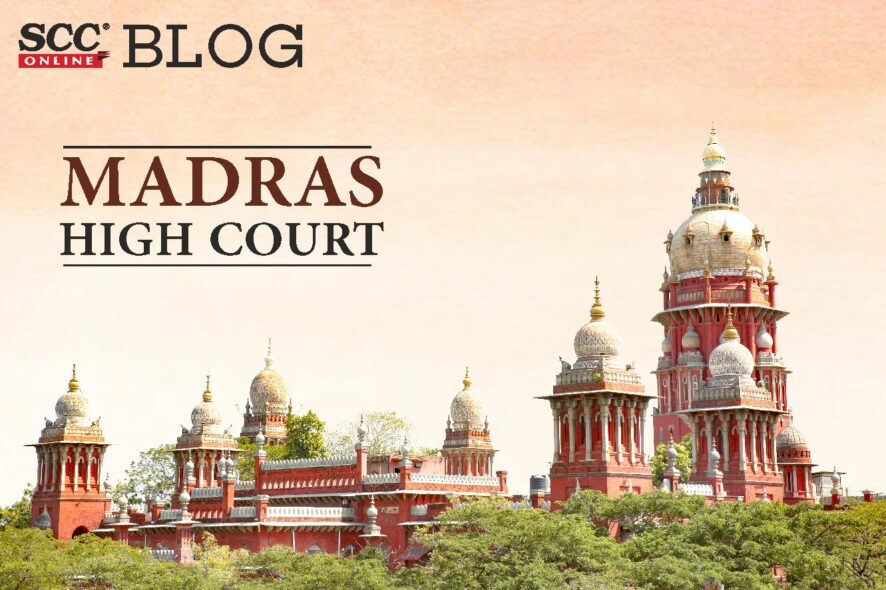Madras High Court: In a case where show cause notices were sent by Assistant Commissioner of Customs (Respondent 4) for short collection of duty due to non-levy of anti-dumping duty in terms of Section 28(1) of Customs Act, 1962, a Division Bench of R. Mahadevan and J. Sathya Narayana Prasad, JJ. placed reliance on the doctrine of ‘substantial compliance’ to hold that the notices are not barred by limitation.
The petitioner firm imported three consignments of Ascorbic Acid for manufacture of medicines and paid the customs duty, following which the goods were released. But subsequently, Respondent 4 issued notices under section 28(1) of Customs Act, 1962 (‘the Act’). While the CESTAT dismissed the two appeals out of three filed by the petitioner. Aggrieved by the final order of the Customs, Excise and Service Tax Appellate Tribunal (CESTAT) dated 11-10-2004, the petitioner has appealed for quashing the same.
Counsel for appellant submitted that as per the provisions of Section 28 of the Act, a show cause notice has to be served within the statutory time limit of six months, from the date of payment of the customs duty. Whereas, in the present matter, the fourth respondent did not comply with these provisions. Hence, the notices served after the expiry of the limitation period were barred as such. He also contended that the 2nd and 3rd Bills of Entry were not duly served according to the said procedure in the Act. Further referring to Sections 28(1) and (3) of the Act, the terms ‘relevant date’ and ‘serve’ were interpreted to show that there was no actual delivery of the impugned documents to the recipient.
Counsel for respondents submitted that with regards to the provisions of Section 28 and Section 153 of the Act, Respondent 4 delivered the notices within the limitation period, according to the statutory procedure.
The Court identified that the primary issue at hand was whether the show cause notices in the respect of the two bills of entry, issued by the Respondent 4 were barred by limitation as per Section 28(1) of the Act. And thus, the Court noted that the notices were duly served with adherence to the impugned statute and that the CESTAT had issued correct orders. Reliance was placed on the case of Commissioner of Central Excise, New Delhi v. Hari Chand Shri Gopal, (2011) 1 SCC 236, to elucidate the doctrine of ‘substantial compliance’ that formed an integral part of the decision of this Court.
It was held as follows:
Doctrine of Substantial Compliance
The doctrine of substantial compliance is a judicial invention, equitable in nature, designed to avoid hardship in cases where a party does all that can reasonably be expected of it, but failed or faulted on some minor or in consequent aspects which cannot be described as the “essence” or the “substance” of the requirements.
Substantial compliance means “actual compliance in respect to the substance essential to every reasonable object of the statute” and the court should determine whether the statute has been followed sufficiently so as to carry out the intent of the statute and accomplish the reasonable objectives for which it was passed.
The doctrine of substantial compliance seeks to preserve the need to comply strictly with the conditions or requirements that are important to invoke a tax or duty exemption and forgive non-compliance for either unimportant and tangential requirements or requirements that are so confusingly or incorrectly written that an earnest effort at compliance should be accepted.
34. The test for determining the applicability of the substantial compliance doctrine has been the subject of a myriad of cases and quite often, the critical question to be examined is whether the requirements relate to the “substance” or “essence” of the thing to be done but are given with a view to the orderly conduct of business, they may be fulfilled by substantial, if not strict compliance. In other words, a mere attempt at compliance may not be sufficient, but actual compliance with those factors which are considered as essential.”
The Court thus held that the demand notices issued by the fourth respondent were not barred by limitation and thus, the order of the CESTAT was upheld. Finally, it dismissed the appeal for writ petitions and closed the related miscellaneous petitions as well.
[Lalchand Bhimraj v. CESTAT, 2022 SCC OnLine Mad 3930, decided on 30-06-2022]
Advocates who appeared in this case :
J. Sivanandaraaj, Advocate, for the Appellant;
T. Pramod Kumar Chopda, Senior Standing Counsel, Advocate, for the Respondent.
*Arunima Bose, Editorial Assistant has reported this brief.







